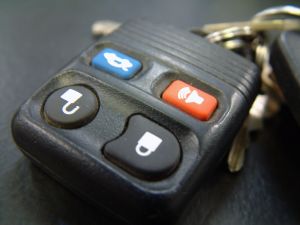New Jersey Car Insurance Laws
New Jersey roads are very safe, but this does not limit the fact that the state reports many cases of car crashes. The auto insurance structure of the state can be said to be very unique. Insurance of motor vehicles comes with several requirements which must be met. To make sure you have an affordable auto insurance policy that meets the requirements, enter your ZIP code into our FREE comparison tool today!
In New Jersey, a driver must have prior knowledge on the legal requirements before purchasing any car insurance quotes. For more information on the legal requirements needed for car insurance, enter your ZIP code into our FREE auto insurance comparison tool and be enlightened.
Types of Insurance Covers Required
Three types of auto insurance policies are mandatory in New Jersey. They include personal injury protection (PIP), uninsured driver cover, and liability cover.
Do a car insurance comparison of these types of coverage to find out what are the best levels of each for you.
The PIP cover is essential for the payment of medical bills of the motorist in case of an accident. The liability cover caters for damages as a result of an accident. The third mandatory cover uninsured motorist policy protects the individual involved in an accident with someone from another state.
Minimum Liability Required
 The state of NJ offers two types of minimum liability policies: the basic and standard policies. The laws of the state require a motorist to have at least the basic minimum liability. A driver can also opt to carry standard policy covers which have more features.
The state of NJ offers two types of minimum liability policies: the basic and standard policies. The laws of the state require a motorist to have at least the basic minimum liability. A driver can also opt to carry standard policy covers which have more features.
- Bodily injury and death per person – $15000
- Bodily injury and death per accident – $30000
- Property damage – $5000
- PIP for each person involved in an accident-$15000
Household Exclusion Covers
Insurance covers in the state can be written to include omissions of other members of the family. The policy holder can also personally choose to make this omission. An individual whose car is used by all his family members should not take an insurance policy with the exclusion clause. Insurance companies cannot pay claims for accidents caused by the excluded individuals.
Under-Insured or Uninsured Coverage
This coverage is part of the three mandatory covers one must carry. These covers usually do not have specifications, and the amount of coverage varies from one individual to the other. Insurance agents offer advice on the level of uninsured or underinsured covers one may require.
Previous Insurance Covers
New Jersey State requires for insurance premiums to be paid religiously and on time. A lapse in the payment signifies a forfeiture of that particular policy. Cancellation of policies takes one day to be functional. A lapse in payment of the insurance covers puts the holder at risk of facing the law makers.
Driving a Rental Car
NJ requires any driver to carry the three covers. Rental cars come covered under the personal car insurance laws of the state. Several insurance companies and credit card establishments offer insurance on rental cars.
System that Governs Insurance
The state adopted a unique system termed the ‘Choice No Fault System.’ Motorists can choose either the tort or no fault system. Under the tort system a motorist will have the right to press charges caused by car accidents.
Teen Drivers Car Insurance Policies
Teenagers in NJ can only start driving at the age of 17 after attaining GDL training. The state laws require teenagers, just like all motorists, to have all the three liability covers while driving. Teen motorists should be covered by comprehensive standard covers as they are prone to collisions. People under 21 years are prohibited from using cell phones while driving in New Jersey.
Penalties for Breaking Laws
Every driver in the state of NJ must carry proper motor vehicle insurance. Failure to adhere to these rules causes one to face harsh penalties. One will have to pay a fine of at least $250, have his license or car registrations cancelled, or get jailed.
 In New Jersey driving without proper insurance coverage is termed as giving a state officer false information. The offense falls under fraud charges which can lead to incarceration of the driver. Penalties for this case come with fines of at least $15000 and termination of one’s driving license.
In New Jersey driving without proper insurance coverage is termed as giving a state officer false information. The offense falls under fraud charges which can lead to incarceration of the driver. Penalties for this case come with fines of at least $15000 and termination of one’s driving license.
Cars in the state have to be inspected after the stipulated time. Expired inspection stickers result in fines worth $100-$200, a jail term of one month, and sometimes denial of consequent registration.
One must provide proof of insurance cover upon request by a state authority or after being involved in an auto accident. Other actions that can be taken for lack of proper insurance include community service, one year license revocation, and a fine of about $1000.
Drivers in the state of NJ must carry Insurance Identification tags whenever they drive. Each car covered must have identification cards.
In the state of New Jersey, it is convenient and rational to have car insurance. Lack of car insurance covers can lead to severe punishments. Some law enforcers can impound the offender’s car as a way of instilling discipline. In addition, if one gets involved in a car accident, payment for damages can be quite costly. For financial stability and peace of mind, one should adhere to the New Jersey State requirements on car insurance liability policies.
All states have different requirements on car insurance. The diverse laws depend entirely on the particular states legislation. A motorist should check out the state’s basic requirements and get great rates by entering his ZIP code into our FREE car insurance comparison tool!
